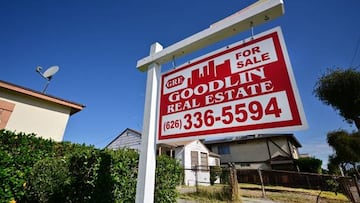Will house prices fall due to the recession according to the experts in the following months?
Housing prices are expected to fall as the Federal Reserve aims to bring down inflation. What else will drive down prices?

Housing prices are expected to fall over the coming months after seeing one of the most historic price increases since the 2008 Financial Crisis. With a little extra cash savings and greater flexibility at home, many households chose to move during the pandemic.
Additionally, over the last two years demand surged even further as investors moved into the single-family house market. Investors entering the market come prepared with essentially unlimited cash compared to individual homebuyers. These investors can then turn a quick profit by renting out or flipping the property, and with the financial power to outbid families, they are sometimes impossible to compete with.
According to Pew Trusts, in January, 33% of homes went to investors many of which were backed by banks and financial companies on Wall Street. In 2021, nearly a quarter, twenty-four percent of homes were sold to investors, nearly double the 12-16 percent averages seen from 2012 to 2020. The ability of these firms to buy up properties have had very serious consequences in rental markets which have also seen staggering and economically debilitating surges in price.
States that have seen the most significant increase in interest by firms entering the market include Florida, Nevada, Vermont, and Washington, where between 2020 and 2021, the number of houses purchased by these firms doubled
Current conditions show that the interest of investors might have peaked last year, with only twenty-two percent of single-family homes being sold to investors from January to May this year.
Federal Reserve moves to increase interest rates
With inflation being felt across product markets, driven primarily by corporate greed, covid-19 supply chain breakdowns, and the ongoing energy crisis, the Federal Reserve has used one of its monetary tools: increasing interest rates. Bumping up interest rates makes borrowing money more expensive, and firms and individuals will adjust their consumer preferences under new conditions. By raising rates, some families may be priced out of the market because high rates impact the total check they would have to cut for on their mortgage each month. Additionally, investors may not see single-family homes as such an attractive asset if rates increase rapidly.
As buyers exit the market, prices should decrease significantly across the housing market. Sellers in many cities, like Boise and Denver, have already reported lowering their asking price last month to readjust to new market conditions. Danielle Hale, chief economist at Realtor.com, told Next Advisor that the imapcts of the Feds decision are alreayd being seen in the housing market.
“We’re starting to see more homes available for sale. That should eventually shift things back into buyers’ favor,” said Hale. The National Association of Realtors reported a six percent decrease in the average price of a home sold from June to July.
While demand may be decreasing and prices may be high, eventually prices should come down to meet the financial power of those who remain in the market. Adding pressure to bring down prices is that some buyers now expect them to come down and will wait until they see the trend reflected in their local markets before making an offer.






